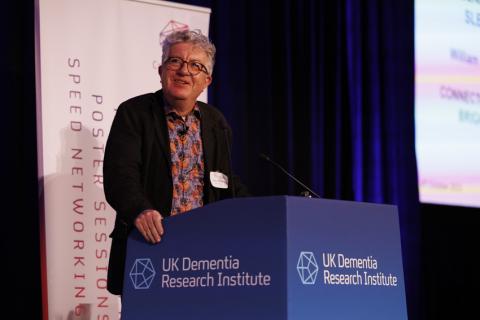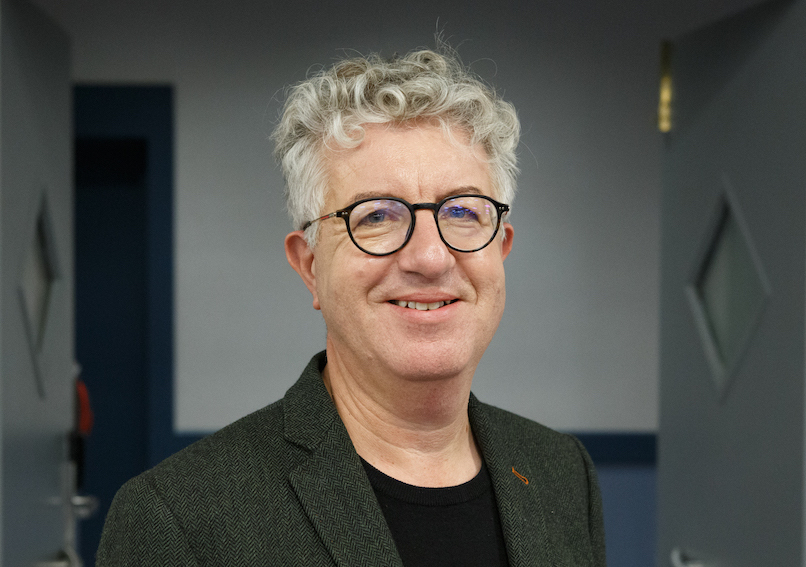Key details
Understanding how and why we sleep
There is no consensus on if sleep is for the brain, body or both. But the difference in how we feel following disrupted sleep or having a good night of continuous sleep is striking. Understanding how and why we sleep will likely give insights into many aspects of health.
The Wisden Lab's work concerns finding out how and if good sleep protects against the development of dementia. They are addressing this using mouse models and also investigating if sleep can improve the emotional and cognitive symptoms of dementia.
Latest news



Prof William Wisden
Prof William Wisden is Centre Director and a Group Leader at the UK DRI at Imperial. Find out more about his career and expertise on his profile page.

Research summary

Credit: Shutterstock/Michael Jung
The benefits of sleep
Evidence is building that sleep disturbances in healthy people, repeated over years, might trigger or accelerate pathological processes leading to dementia, e.g. by causing oxidative stress or enhancing amyloid deposition.
The Wisden Lab have several objectives in their QQ2 UKDRI Programme, all concerned with investigating if the different types of sleep (NREM and REM) can delay the onset of dementia and have restorative effects by enhancing clearance and/or by enhancing cognition.
- Does NREM sleep promote toxin clearance and does clearance decrease with age or disease-related pathology? We have developed a system to track clearance of molecules in the brain during sleep and wake states. So far, the Wisden Lab have found the opposite of what we set out to test. They discovered that clearance of small molecules decreases during sleep and is increased during wakefulness (Miao et al 2024).
- Does chronic sleep-wake fragmentation (insomnia) or permanent sleep loss promote disease-related pathology? The team have developed two genetic models of sleep loss and insomnia: a mouse model of permanent sleep loss (one third less sleep a day) and a mouse model of permanent insomnia (normal amounts of sleep, but chronic sleep-wake fragmentation). This will allow the team to see, compared with baseline, if disease-related pathology appears more quickly in the brains of these chronically sleep-deprived mice. Is chronic clearance reduced?
- People with dementia selectively lose REM sleep. The Wisden Lab have discovered brain circuitry in mice that allows REM sleep to be selectively prolonged or decreased (Ba et al., 2024). Thus, the team can now investigate if this sleep state promotes toxin clearance and if more REM sleep reduces emotional and cognitive disturbances.
- The Wisden Lab are investigating if sleep can improve the emotional and cognitive symptoms of dementia. They have discovered that stress can induce sleep and that this sleep is beneficial to reduce anxiety (Yu et al., 2022).
Key publications
Vacancies
Lab members
- Dr Berta Anuncibay Soto (Postdoctoral Researcher)
- Dr Mathieu Nollet (Postdoctoral Researcher)
- Dr Sara Wong (Postdoctoral Researcher)
- Dr Farnaz Fahimi Hanzaee (Postdoctoral Researcher)
Collaborators



Lab funders
Thank you to all those who support the Wisden Lab!

